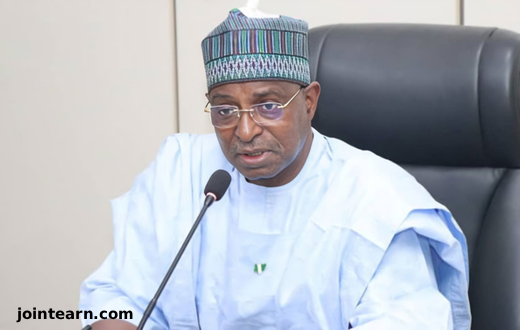
West African countries and the Sahel continue to grapple with limited availability and quality of animal feeds, a challenge that has hindered the modernization of livestock farming across the region.
The concern was raised by Minister of Livestock Development, Idi Mukhtar Maiha, at the opening of a regional high-level workshop on the development of the animal feed industry in West Africa and the Sahel.
Maiha, represented by the Permanent Secretary of the Ministry, Dr. Chinyere Ijeoma Akujobi, highlighted the region’s untapped potential in animal production, pastoral areas, diverse livestock, and the ancestral know-how of livestock farmers. Despite these advantages, he noted, the lack of industrial infrastructure, dependence on imported feed, climate variability, and weak regional coordination have limited the competitiveness of the livestock sector.
“Animal feed accounts for a significant portion of animal production costs. This situation hinders modernization, increases the vulnerability of livestock farmers, and reduces the ability of countries to meet growing food demand,” Maiha said.
He emphasized that Nigeria’s National Livestock Growth Acceleration Strategy (NLGAS) 2025–2035 prioritizes the development of a strong local feed industry. “A robust regional feed sector will create jobs, reduce import dependence, and strengthen food sovereignty in West Africa,” he added.
The workshop, according to Maiha, provides a platform for dialogue between public and private stakeholders, sharing successful experiences, and identifying tools to build a competitive regional animal feed industry.
Konlani Kanfitin, Executive Director of the Regional Agency for Agriculture and Food (ARAA), noted that the two-day event also aims to transform research findings from the PRISMA project into concrete regional priorities supporting food security, private sector participation, and sustainable agricultural transformation.
Kanfitin warned that without a structured and efficient sector, it will be difficult to modernize livestock production sustainably or meet growing demand. He stressed the region’s potential, including agricultural by-products, agro-industrial co-products, fodder crops, and enterprising youth, must be harnessed to build a resilient feed industry.
ECOWAS has also conducted studies on establishing feed supply centers, exceptional import procedures during crises, online feed purchasing platforms, and harmonized protocols for feed analysis. “A strong regional feed industry will enhance the operational efficiency of the ECOWAS Regional Food Security Reserve and improve crisis management,” he said.
The PRISMA Project is co-financed by the European Union and the Spanish Cooperation (AECID), with technical support from Luxembourg and Belgian Cooperation, aiming to strengthen sustainable agro-pastoral systems in West Africa.


Leave a Reply